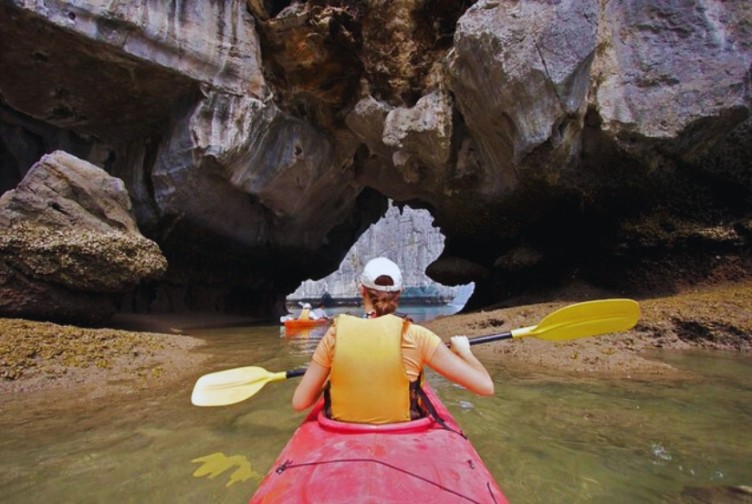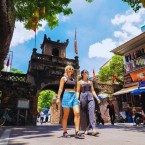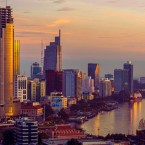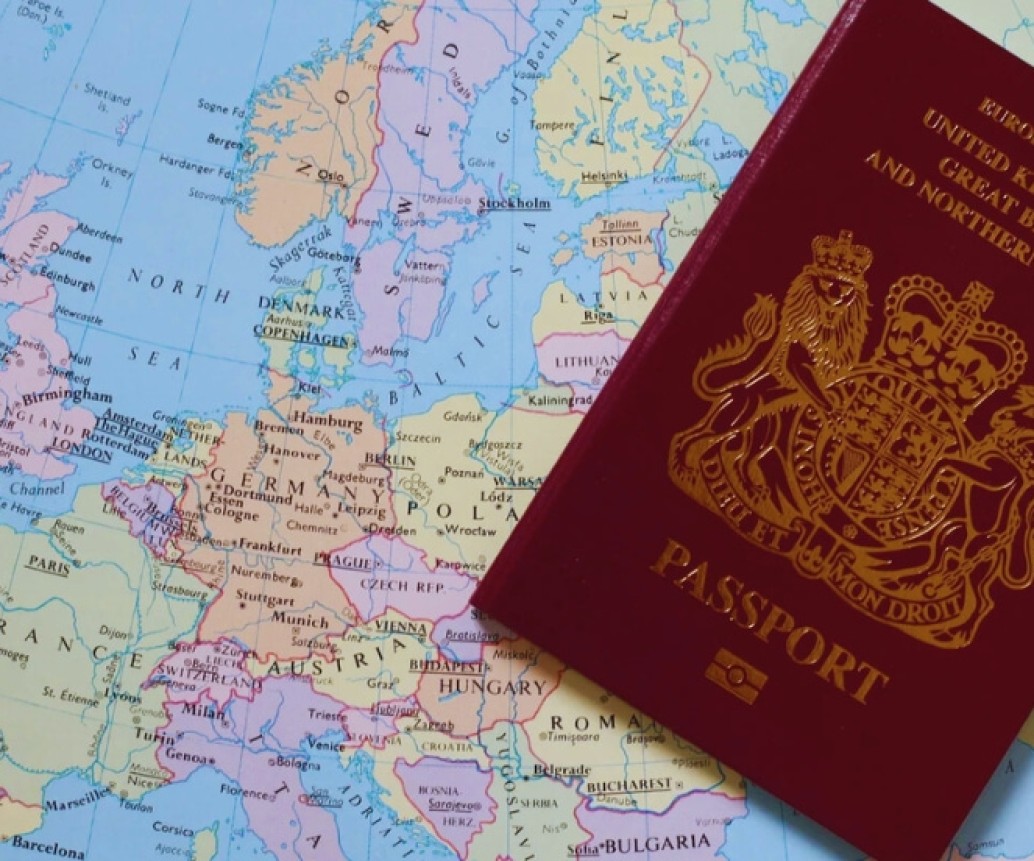
Vietnam Travel Advice UK: Essential Tips For British Travelers
Content []
This Vietnam travel advice UK guide will walk you through everything you need to prepare for your adventure. From when to go, how to get there, and what to pack, to practical information on money, transport, and customs, here’s your complete handbook for a seamless trip to Vietnam. For the latest official updates, you can also check Vietnam travel advice gov uk, which provides government-backed guidance on visas, safety, and entry requirements.
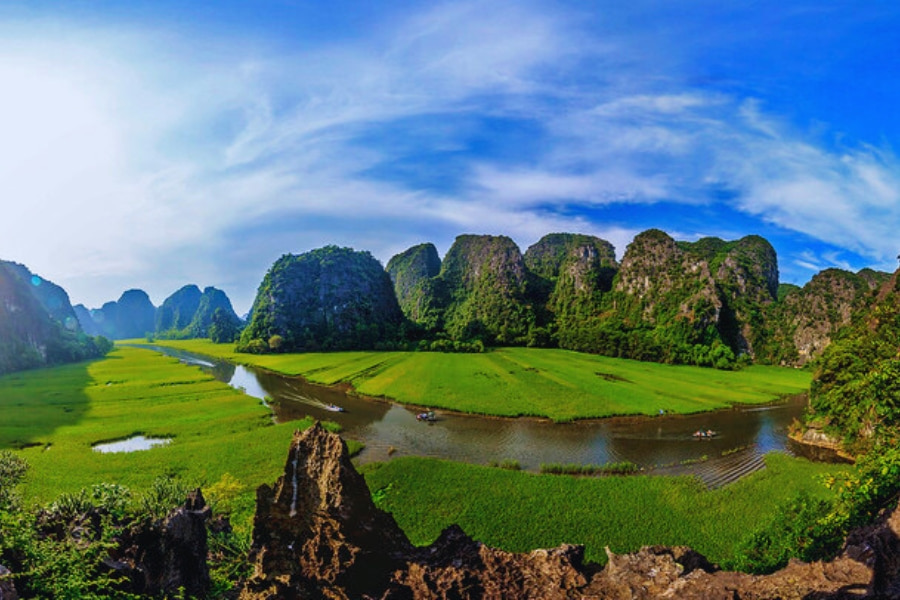
Table of Contents
- I. Is a Visa Required for UK Citizens Visiting Vietnam?
- II. Best Seasons to Visit Vietnam for UK Tourists
- III. Flights from the UK to Vietnam
- IV. Vaccinations and Health Advice for Travelers to Vietnam
- V. Money and Budgeting in Vietnam
- VI. Transportation Tips for British Travelers
- VII. Safety and Common Scams in Vietnam
- VIII. Vietnamese Cultural Etiquette for UK Travelers
- IX. Internet & SIM Card Tips for Travelers in Vietnam
- X. What to Pack for Vietnam from the UK
- XI. Recommended Vietnam Itineraries for UK Travelers
I. Is a Visa Required for UK Citizens Visiting Vietnam?
One of the first questions most British travelers ask is whether they need a visa to enter Vietnam. The good news is that Vietnam offers visa exemption for UK passport holders, making travel planning easier than ever.
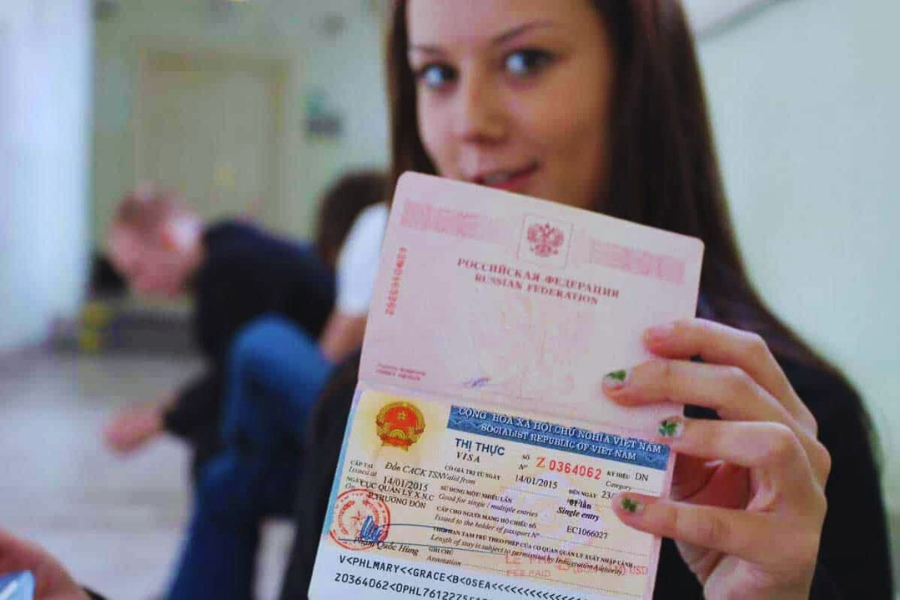
- Visa exemption: As of current regulations, UK citizens can visit Vietnam visa-free for up to 45 days for tourism or short-term travel.
- E-visa option: If you’re planning to stay longer or make multiple entries, you can easily apply online for a Vietnam e-visa, valid for up to 90 days. The process is straightforward and done directly through Vietnam’s official immigration portal.
- Extensions: Travelers wishing to stay beyond their visa validity can request an extension through local travel agencies, but it’s generally smoother to arrange your visa type before you arrive.
II. Best Seasons to Visit Vietnam for UK Tourists
Vietnam stretches over 1,600 kilometers from north to south, meaning its weather patterns vary dramatically by region. Knowing when to visit can make your trip more comfortable and rewarding.
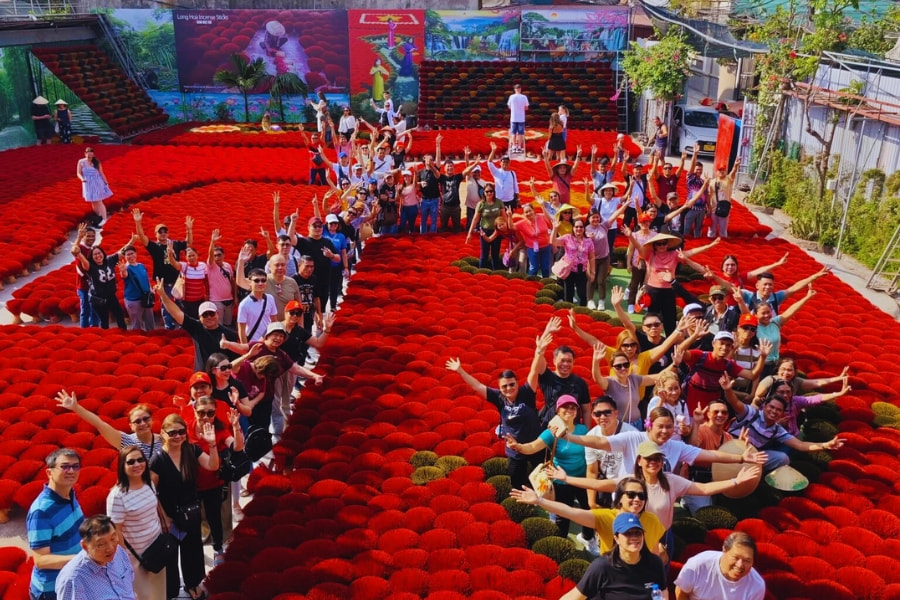
Northern Vietnam (Hanoi, Ha Long Bay, Sapa): Best from October to April, when the air is cooler and drier—perfect for cruising or trekking.
Central Vietnam (Hoi An, Hue, Da Nang): Ideal between February and August; however, keep in mind that September to November may bring typhoons.
Southern Vietnam (Ho Chi Minh City, Mekong Delta, Phu Quoc): Warm year-round, with the dry season from December to April being the most pleasant.
III. Flights from the UK to Vietnam
Currently, there are no direct flights between the UK and Vietnam, but reaching the country is easy with one convenient stopover through major international hubs.
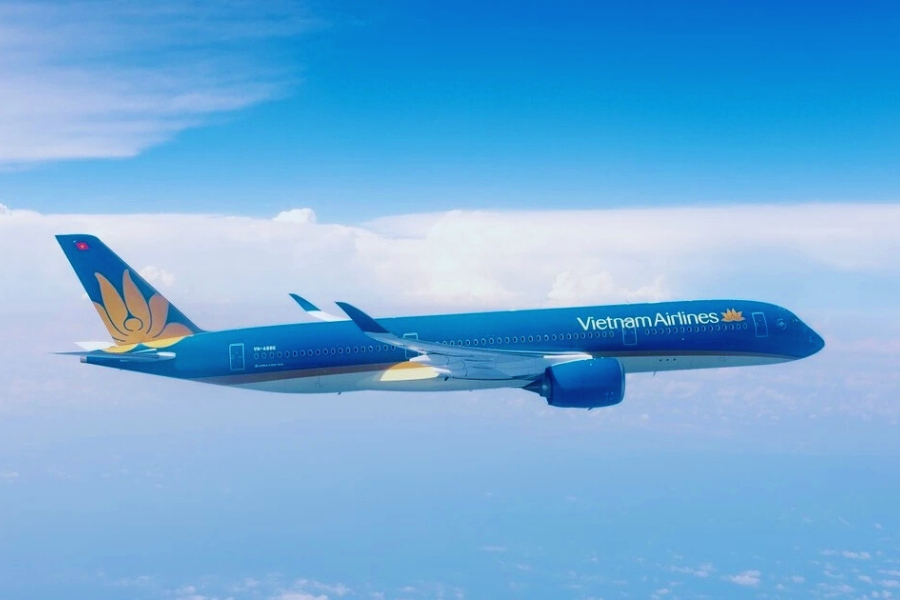
- Popular flight routes:
- Qatar Airways via Doha
- Emirates via Dubai
- Singapore Airlines – connecting through Singapore Changi Airport
- Thai Airways via Bangkok
- Choose Malaysia Airlines, offering smooth connections through Kuala Lumpur International Airport.
Flight time is around 13–16 hours including layovers. The two main entry points are Noi Bai International Airport (Hanoi) in the north and Tan Son Nhat International Airport (Ho Chi Minh City) in the south.
IV. Vaccinations and Health Advice for Travelers to Vietnam
Before traveling from the UK to Vietnam, it’s essential to prepare with basic vaccinations and health precautions.
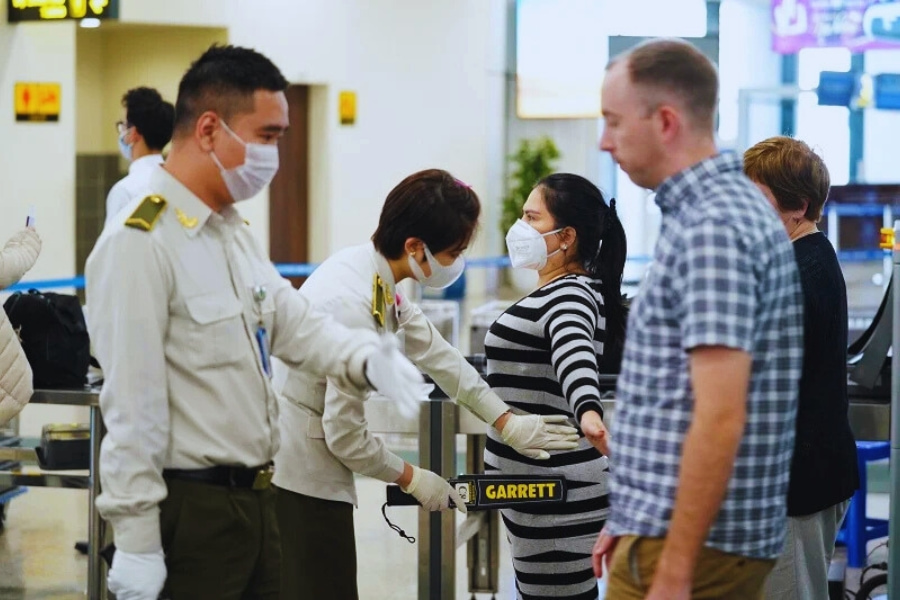
- Recommended vaccines: Health experts recommend Hepatitis A, Typhoid, and Tetanus vaccinations before traveling to Vietnam. Depending on your itinerary, Hepatitis B, Japanese Encephalitis, or Rabies vaccines might also be recommended.
- Malaria risk: Low in major cities such as Hanoi and Ho Chi Minh City, but some rural or jungle regions may require preventive medication.
- Travel insurance: Always purchase comprehensive travel insurance covering medical care, accidents, and theft.
V. Money and Budgeting in Vietnam
Vietnam is known for being excellent value for money, especially for British travelers.
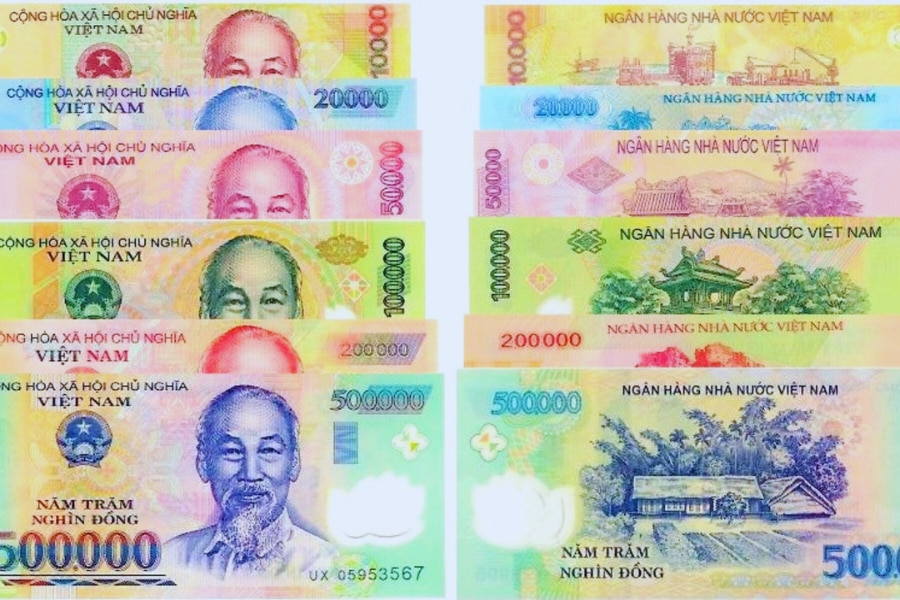
- Currency: Vietnam’s official currency is the Vietnamese đồng (VND).
- Exchange rate: Roughly £1 = 30,000 VND, though rates fluctuate.
- ATMs: Widely available in major cities but may charge small fees per withdrawal.
- Card use: Credit and debit cards are accepted in hotels, restaurants, and malls, but cash is essential for local markets, taxis, and street food.
- Average daily budget:
- Mid-range travel: £25–£40 per day
- Luxury travel: £80+ per day
VI. Transportation Tips for British Travelers
Getting around Vietnam is part of the adventure, with many options depending on your comfort and schedule.
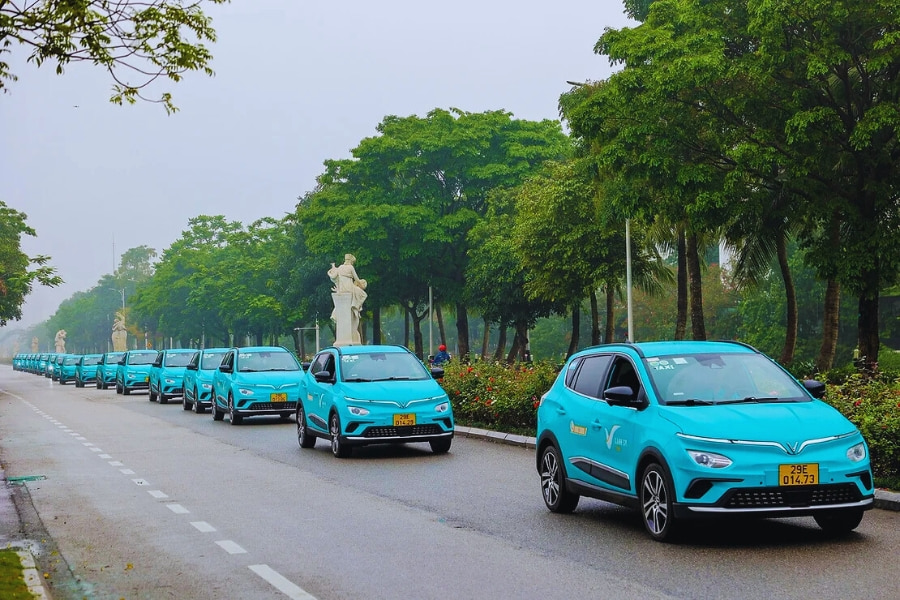
- Domestic flights: The quickest way to travel long distances, such as Hanoi–Ho Chi Minh City.
- Trains: The Reunification Express offers a scenic journey along Vietnam’s coast from north to south.
- Buses: Affordable and reliable for short distances, though overnight trips can be long.
- Taxis & Grab: Use the Grab app for transparent pricing—safer than hailing taxis on the street.
- Motorbikes: Popular for adventurous travelers, but not recommended for beginners due to chaotic traffic.
VII. Safety and Common Scams in Vietnam
Vietnam is considered one of the safest countries in Southeast Asia for British travelers. Violent crime is extremely rare, but like in any tourist destination, you should stay alert and use common sense to avoid petty theft or travel scams.
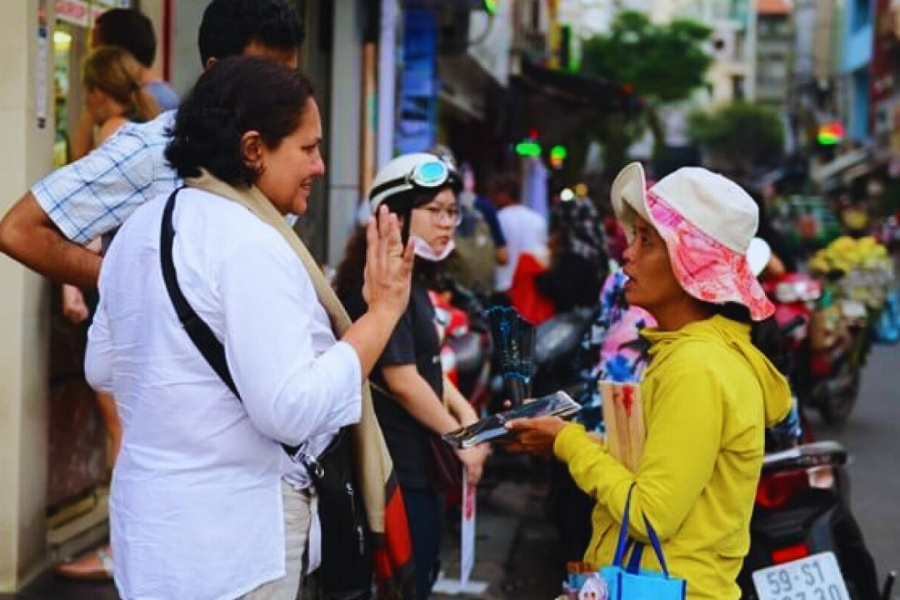
- Pickpocketing: Keep your phone, wallet, and important documents in a secure cross-body bag, especially in crowded places such as Ben Thanh Market, bus stations, and festivals.
- Taxi scams: Some unlicensed taxis charge inflated fares or take longer routes. Always use trusted ride-hailing apps like Grab, or reputable taxi companies such as Vinasun and Mai Linh.
- Fake tours: Book tours only through official travel agencies like Auasia Travel or your hotel’s front desk. Avoid paying cash deposits to street vendors or unverified online listings.
- Traffic awareness: Motorbikes dominate Vietnam’s streets. When crossing, move slowly and steadily—drivers will weave around you. Avoid sudden movements.
VIII. Vietnamese Cultural Etiquette for UK Travelers
Learning Vietnamese customs will make your trip smoother and far more rewarding. Vietnamese culture values respect, modesty, and politeness, and observing a few simple customs will help you connect with locals.
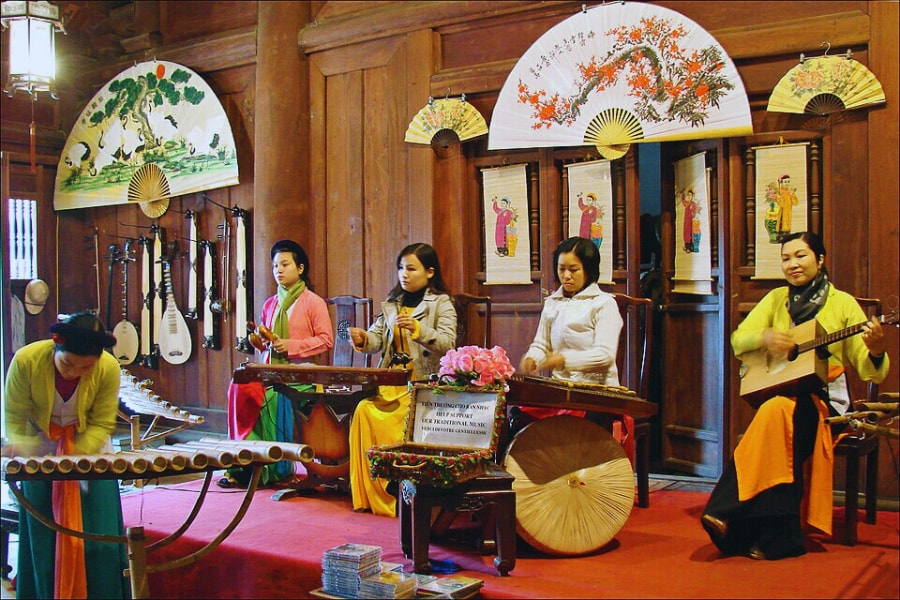
Dress modestly when visiting temples, pagodas, and traditional villages in Vietnam. Cover shoulders and knees.
Remove your shoes before entering someone’s home or any place of worship.
Use two hands when giving or receiving gifts, money, or business cards.
Avoid public displays of affection in Vietnam, as they are considered impolite in local culture.
Respect elders—a polite greeting or smile goes a long way.
British travelers often find Vietnamese hospitality refreshing. Showing respect for traditions will not only earn you goodwill but also deepen your understanding of the country’s unique culture.
IX. Internet & SIM Card Tips for Travelers in Vietnam
Staying connected in Vietnam is simple, reliable, and very affordable for travelers. Upon arrival, you can purchase a local SIM card directly at airports or convenience stores.
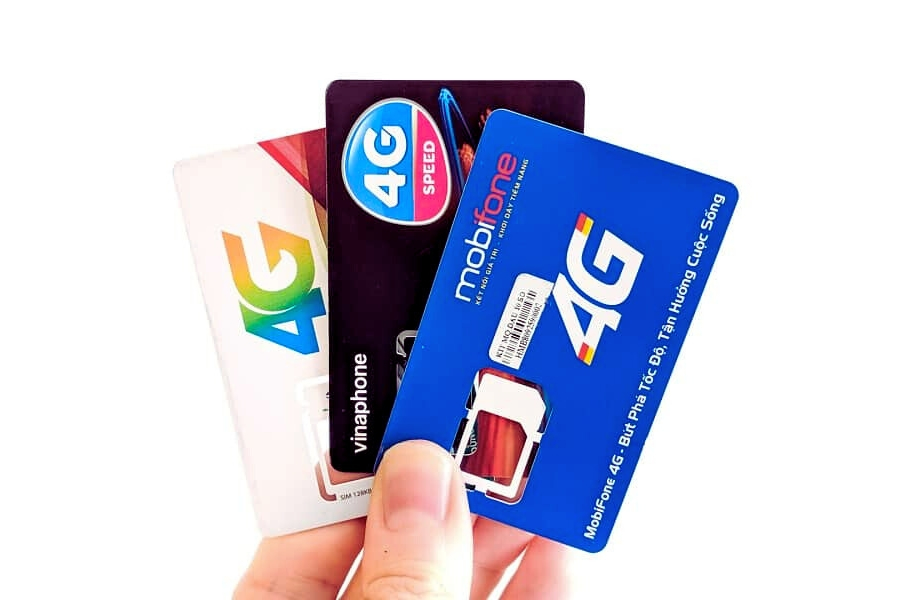
- Top providers: Viettel, Vinaphone, and Mobifone offer reliable 4G and 5G coverage across most cities and tourist areas.
- Cost: Expect to pay £5–£10 for a prepaid plan with plenty of data for two to four weeks.
- Wi-Fi: Free Wi-Fi is available in nearly all hotels, cafés, restaurants, and even buses.
X. What to Pack for Vietnam from the UK
Packing light but smart is key to a comfortable Vietnam holiday. The climate varies by region, so versatility is important.
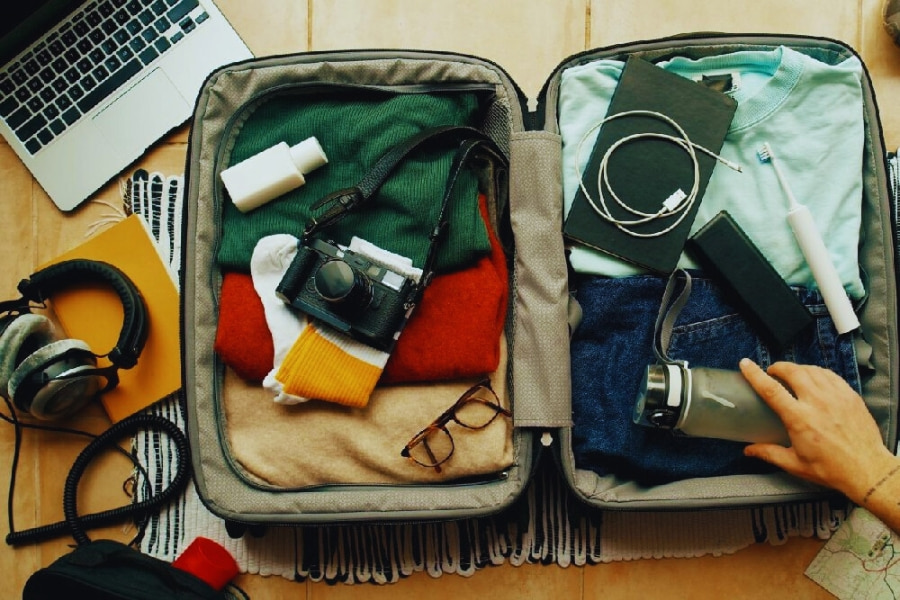
Essentials include:
Choose breathable fabrics and lightweight outfits for Vietnam’s humid tropical conditions.
A rain jacket or poncho (especially useful during monsoon months)
Sunscreen and insect repellent
Comfortable walking shoes for exploring cities, temples, and natural sites with ease.
Universal travel adapter to keep all your devices charged throughout your Vietnam trip.
Reusable water bottle to stay hydrated and help reduce plastic waste while traveling.
Modest outfits for temples and cultural sites
XI. Recommended Vietnam Itineraries for UK Travelers
Two Weeks Vietnam Highlights – Hanoi, Ha Long Bay, Hue, Hoi An, Ho Chi Minh City & Mekong Delta (Classic Route)
Three Weeks In-Depth Vietnam Journey to explore the Best of Vietnam – North to South Highlights Tour
North: Cultural capital Hanoi, adventure-filled Ha Giang Loop, scenic Sapa, and iconic Ha Long Bay.
Central: Historic Hue, beachside Da Nang, charming Hoi An, and mysterious Phong Nha caves.
South: Vibrant Ho Chi Minh City, serene Mekong Delta, and paradise island Phu Quoc.
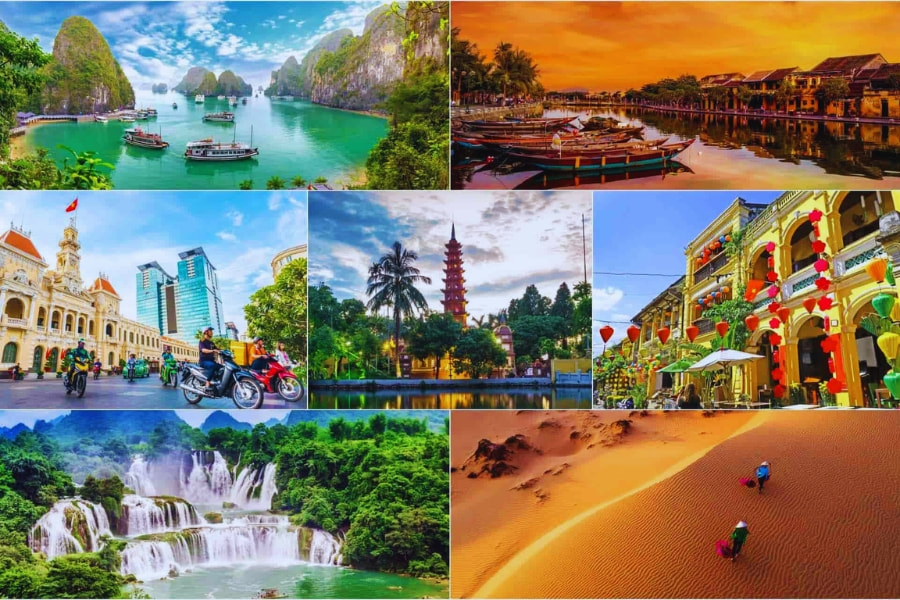
So, what’s the takeaway from Vietnam Travel Advice UK? Vietnam remains one of Asia’s most rewarding destinations—safe, budget-friendly, and full of warmth for British travelers. With the right planning—covering your visa, insurance, health precautions, and respect for local culture—you can explore confidently and without worry.
From the energetic charm of Hanoi’s Old Quarter to the lantern-lit alleys of Hoi An and the lively nightlife of Ho Chi Minh City, every corner offers rich history, vibrant traditions, and unforgettable cuisine. Whether it’s your first time or a long-awaited return, these travel insights help you make every moment count. Before confirming your plans, always double-check the latest updates on Vietnam travel advice gov uk for accurate, official information.
With Auasia Travel – Vietnam Travel Advice UK, your trip preparation becomes effortless. We deliver expert tips on visas, etiquette, safety, and currency to help British travelers enjoy a smooth, authentic experience. From cruising the emerald waters of Ha Long Bay to relaxing on the beaches of Phu Quoc, Auasia Travel ensures you discover the true spirit of Vietnam—safely, meaningfully, and beyond expectations.
---> North Vietnam 7 Days
---> South Vietnam 9 Days
---> Middle Vietnam 6 Days
---> Vietnam Package Tours
Read this next
Quick Contact
WHAT DO CUSTOMERS SAY ABOUT US?
See Real Experiences from Our Travelers
